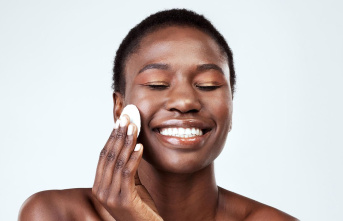Around 20 percent of people will experience depression at least once in their lives. The mental illness, which is characterized above all by a depressed mood, exhaustion and loss of interest, has now become a widespread disease.
The more people are affected, the more urgent the question of suitable treatment methods becomes. So far, doctors and therapists have mainly relied on antidepressants and psychotherapy.
A Swiss research team has now found out that probiotics can also have a positive effect on the mood of depressed people - if the preparations for the intestinal flora are taken in addition to antidepressants.
The scientists around Anna-Chiara Schaub from the Psychiatric University Clinic in Basel divided the severely depressed participants in their study into two groups: one received a probiotic for a month, the other a placebo in addition to the usual dose of antidepressants.
The result: The mood of the participants who received probiotics was significantly better than the mood of the others. A clear success for the researchers: "Our results indicate that additional treatment with probiotics improves the depressive symptoms and increases specific health-related bacterial taxa," says the presentation of the study.
And there are first indications as to why this could be: On closer inspection of the intestinal flora, it was noticeable that the lactic acid bacteria had increased significantly in the first month as a result of taking probiotics. However, after the preparations were discontinued, the proportion of these healthy intestinal bacteria also decreased again. According to the research team, this suggests that a longer intestinal cleanse is needed to be able to treat depressive symptoms concomitantly.
With their study, the Belgian researchers show once again what a great influence the intestinal flora has on our well-being. However, it is by no means the first study in this area. Scientists were already able to prove in advance that the composition of the intestinal bacteria plays an important role in depressive symptoms.
According to a study by the Catholic University of Leuven in Belgium, two strains of bacteria are missing from the intestinal flora of people with depression - the genera Coprococcus and Dialister. Even taking antidepressants couldn't change that.
So the move to include probiotics as a supplement in the treatment is only logical. It also depends on the type of probiotic. In the Swiss study, for example, the well-known probiotic Lactobacillus was used.
Other good intestinal bacteria are, for example, Bifidobacterium, Dialister or Akkermansia. Aside from supplements, we can also get them from eating dairy products or fermented foods.
In addition to the effects mentioned in the study, probiotics can also regulate our emotions, reduce stress and promote the production of happy hormones. And the best thing about it: There are hardly any side effects.
Instead, it is quite possible that the professional intake of probiotics, coordinated with medical professionals, can also improve intestinal health and reduce chronic inflammatory diseases.
But how does a probiotic actually work? The microbiome in the gut is as unique as our personality. As soon as it is thrown off balance by too many bad bacteria, the intestinal lining begins to crack.
This is where pathogens and toxins can enter our bloodstream. This is how a lot of chronic diseases develop. The probiotic is supposed to repair these cracks and thus strengthen our immune system.
To achieve this, the probiotic microbes produce so-called interleukins, which are anti-inflammatory messenger substances. In addition, probiotics promote the formation of neurotransmitters such as serotonin, dopamine and GABA - all of which are significantly involved in our feeling of happiness.
It is therefore hardly surprising that the Swiss research team was able to determine a significant improvement in the well-being of the participants with probiotics.
For first author Anna-Chiara Schaub, however, it is clear that further research is needed in the field: "Although the microbiome-gut-brain axis has been a topic of research for several years, the exact mechanisms are only partially clear to date."
For example, additional knowledge about the effects of the individual bacterial strains is needed in order to be able to use them specifically for therapy. But one thing remains the same: "Probiotics are not suitable as the sole therapy for depression."
Source: Study by the University Hospital in Basel, study by the Catholic University of Leuven












